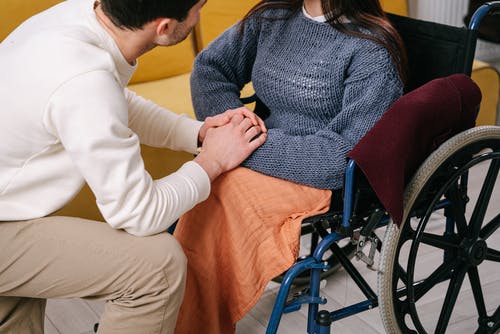The Importance Of Personal Hygiene In A Disability Care System

There are many types of for the elderly, but the goal is the same: to improve the quality and safety of the people who most need it. If you are looking into elder care, it is important to understand the range of services available and the qualifications and experience of those providing it. There are many types of disability care. Each type requires different levels of support and commitment. This article will provide a basic overview of disability care and the responsibilities of caregivers for people with disabilities.
A respite is essentially a location where a person can be waited on by other loved ones. This is not a simple task of providing assistance to an elderly person with basic tasks. Rather, it is a situation in which a disabled senior can spend quiet time with those who love and care dementia home care them. The benefit of respite care is that your loved one maintains a sense of independence and thus does not feel trapped in a home or facility. The level of independence you’re looking for might include having their own bathroom and being able to make daily food choices.

Assisted living facilities are a place where people with certain disabilities can live independently. These facilities are usually for people with mobility issues, who have difficulty moving or performing basic tasks. The right support for this form of disability care ensures that people can lead as normal a lifestyle as possible. The right support allows people to maintain dignity and independence, even when they don’t have the help that they need.
Assisted living is suitable for a variety different conditions. For some, disabilities often come and go and for others, they’re a lifelong condition. It’s important to consider what kind of conditions the individual with your loved ones have to deal with and find a solution that fits their lifestyle and daily living. This can include physical handicaps as well as mental impairments and cognitive impairments.
Assisted living can also be suitable for people with more complicated needs. Many individuals suffer from cognitive and physiological disabilities that limit their ability to live independently. People with complex needs can benefit from therapies, adapted behavior, or adapted lifestyle. A disability care team will be able recommend therapy options that are specific to each individual. This type of specialized care ensures that all people with disabilities get the help they require to stay happy and healthy.
Disability home care may be required for more complex needs. This type of disability care involves specially trained people who help individuals with more complex mental and physical disabilities live as independently as possible. Some people can do the daily activities of living independently. Some people need more help and require higher levels of skill. This is why disability homecare has become an important service offered by many rehabilitation centres and private companies across the country.
Many people require personalized services from private companies and rehabilitation centers to live independently. In some cases, a person may be able to perform the tasks of life, but they face difficulties with physical disabilities or medical conditions. These specialized services may also include adaptive devices and other items. Individuals may need personal care services to help maintain their independence.
Personal care services are an important component of disability care. This is especially important for people who have more complex needs, because they cannot perform most of the tasks of their day-to-day living. This includes personal hygiene. A skilled personal caregiver can ensure that the right level of hygiene is maintained in a person with disabilities. This can be a difficult task, as it is more likely that a person with disabilities will be mistreated if the caregiver doesn’t know their personal hygiene level. By providing the right type of personal hygiene, the caregiver is helping to ensure that the person with disabilities maintains a high level of independence.
